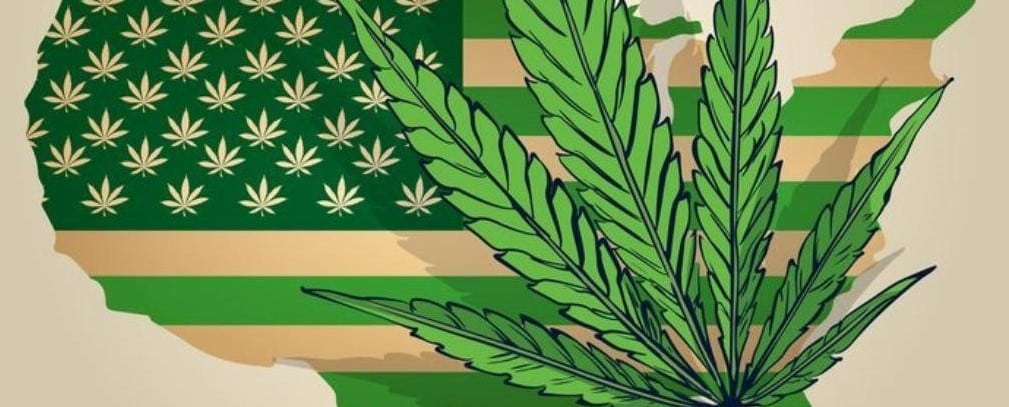
Maybe you thought the United States government legalizing marijuana would just mean the US government would butt out, leaving people alone to smoke joints or eat chocolate chip and marijuana cookies in peace. Unfortunately, national marijuana legalization will not be like that if 12 organizations behind a new report have their way.
The Washington, DC machine is kicking into gear to ensure that national marijuana legalization, which looks inevitable given public support, is laden with many new US government dictates. Among other goals, the 12 organizations are advocating in the new report that the US government micromanage marijuana so much that US law effectively builds a wall between marijuana and both alcohol and tobacco.
The Washington, DC machine does not want to give up power. If it must give up prohibition of marijuana, something else will be demanded to take its place. “OK, here’s the deal: We’ll end the war on marijuana and in its place build a fortress of new taxes and other controls; take it or leave it.”
The Recommendations Report of the Federal Cannabis Regulations Working Group is supported by 12 organizations including the American Civil Liberties Union, the Drug Policy Alliance, and the United Food & Commercial Workers International Union. (Find below a list of the organizations that signed off on the report.) The report is chock-full of recommendations for imposing new layers of government control — from creating new taxes to imposing new laws and regulations for advancing extraneous goals including “social and economic equity” — all enforced by Uncle Sam.
The report’s advocacy for turning national marijuana legalization into a US government power grab should be of little surprise given that Federal Cannabis Regulations Working Group was convened by the Drug Policy Alliance. The Drug Policy Alliance has claimed it drafted the Marijuana Opportunity Reinvestment and Expungement Act (the MORE Act). The US House of Representatives Democratic leadership has, by using that bill containing government power expanding extraneous provisions anathema for many Republicans as the vehicle for legalization, ensured that progress toward national marijuana legalization continues to be put off despite substantial majority support.
Looking in particular at the report’s recommendations regarding alcohol and tobacco in relation to marijuana, we find this first mention: “Federal legislation should include a statement that because of its history, cannabis is unlike alcohol or tobacco, and that the intent and purpose of federal reform is to end and repair the harms caused by cannabis prohibition, to advance health equity, to foster social and economic equity, and to prevent future harm.”
Later, singled out as a type of company that “should be excluded from the cannabis industry” is any company “with ownership or control by a tobacco company convicted under the RICO Act.”
The report also calls for barring the presence of any “associations with tobacco or alcohol products” in marijuana advertising and marketing. This speech prohibition is promoted as a requirement to “protect consumers.”
Also promoted as a requirement to protect consumers is a prohibition on consuming marijuana where alcohol is also consumed. The report states:
The use of cannabis should be allowed in some types of regulated public spaces with separate areas for smoking and consuming cannabis and with proper worker protections and ventilation. Alcohol consumption and cannabis consumption should be separated.
The effort to wall off marijuana from alcohol and tobacco in the process of establishing national marijuana legalization even extends to the report calling for prohibiting marijuana from being sold by any store or other place that sells either alcohol or tobacco, as well as banning products that contain both marijuana and either alcohol or tobacco. In fact, the prohibitions even extend to one component of tobacco — nicotine. Marijuana should be legalized, but …. Here is how the report proposes these new prohibitions: “Products that combine cannabis and nicotine or alcohol, or other additives that increase addiction potential, should be prohibited; and selling cannabis and nicotine or alcohol from the same outlet should be prohibited.”
These are the 12 organizations that signed off on the Federal Cannabis Regulations Working Group’s Recommendations Report:
American Civil Liberties Union
Association for Cannabis Health Equity and Medicine
Cannabis Regulators of Color
CB Counsel PLLC
Doctors for Cannabis Regulations
Drug Policy Alliance
The Hood Incubator
Parabola Center
Root & Rebound
Students for Sensible Drug Policy
United Food & Commercial Workers International Union
Veterans Cannabis Coalition

